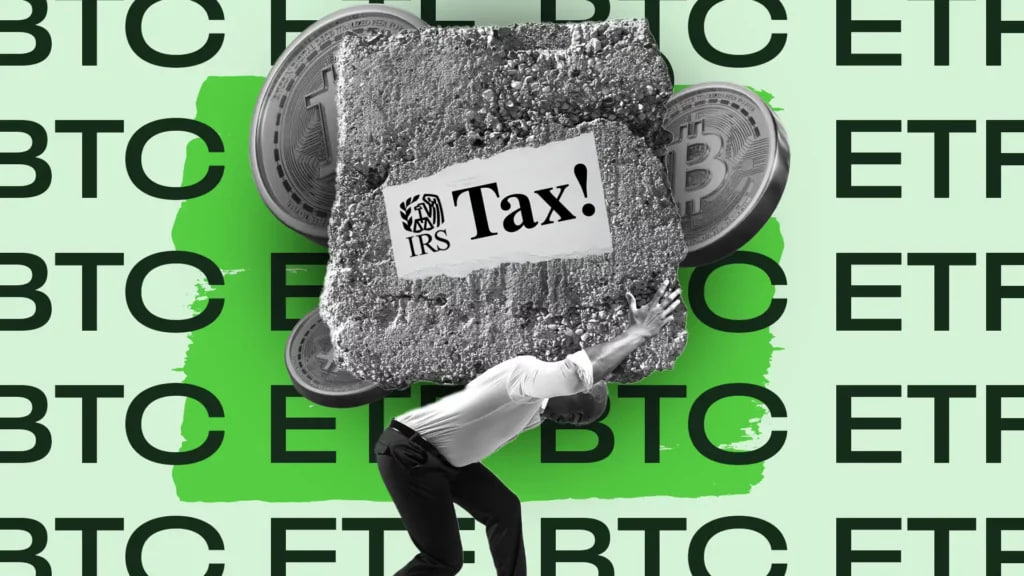IRS to Tighten Crypto Tax Oversight by 2025

Changes are coming for U.S. crypto enthusiasts — in 2025, the IRS will begin monitoring cryptocurrency transactions. While some may feel the sting of stricter regulations, others can plan ahead to stay compliant.
On this page
IRS Reporting — Who’s Affected?
U.S.-based cryptocurrency trading platforms, such as Coinbase and Gemini, will now have to report customer transactions to the IRS. This requirement also extends to brokers operating custodial platforms, digital wallets, and virtual currency payment providers.
The transaction data will be captured in the newly introduced Form 1099-DA, which will be required for tax filings beginning in 2026.
For more insights, check out our article, “Crypto Investors in the IRS’s Crosshairs — How to Avoid Penalties“.
An important detail to remember is that the cost basis of assets (their original purchase price) won’t be included in IRS reports until the 2026 tax year. Investors will need to manually track their acquisition costs until that time. To support this, exchanges must provide account statements when requested.
These changes are likely to pose extra challenges for some, particularly those investing in cryptocurrency ETFs. Beyond aligning income with exchange-reported data, managing these additional complexities may prove cumbersome.

Navigating Tax Rules for Bitcoin ETFs
Bitcoin ETFs provide a hassle-free alternative for investing in the original cryptocurrency, eliminating the need for direct ownership or secure storage. That said, they carry unique tax requirements under U.S. law that investors must understand.
How Bitcoin ETFs Impact Tax Reporting
Bitcoin ETF providers issue forms such as 1099-B or 1099-DA to investors, detailing share sales and taxable activities within the fund. While investors may hold their ETF shares for extended periods, internal transactions within the fund can still generate tax consequences.
A unique feature of Bitcoin ETFs is that fund managers often sell assets to pay for operational expenses, including administrative fees. These sales produce gains or losses that are distributed among shareholders, who are then required to report these amounts on their tax returns—a process that complicates tax compliance for many investors.
Dividends paid by certain Bitcoin ETFs are another taxable component for investors. These payouts, typically funded by the fund’s income from asset management, are subject to taxation as ordinary income. However, the rate can vary depending on whether the dividends are classified as qualified or non-qualified.
Taxing Bitcoin ETF Gains — Short-Term vs. Long-Term
The tax treatment of Bitcoin ETF profits varies by holding period. If an investor sells shares within a year of purchase, the profits are taxed at ordinary income rates, which can be as high as 37% for those with high incomes.
For shares held longer than a year, the profits are taxed as long-term capital gains, benefiting from reduced rates between 0% and 20%, depending on the investor’s income level.

Why Are Bitcoin ETFs More Complex for Taxes?
The structural design of Bitcoin ETFs is the root of their tax complications. For example, certain ETFs are classified as trusts, requiring investors to navigate completely different tax rules—a challenge even for those well-versed in cryptocurrency investing.
Funds registered as grantor trusts, like the Grayscale Bitcoin Trust (GBTC), require investors to pay taxes on capital gains or fund-generated income, even if no dividends are distributed to them personally. This stands in contrast to traditional ETFs, where taxes are only owed when shares are sold.
Given this distinction, Bitcoin ETF investors should consult with tax professionals to properly account for these transactions and avoid errors.
Decentralized Finance and Taxation — What Users Need to Know
Decentralized platforms like Uniswap, SushiSwap, and PancakeSwap empower users with full control of their assets, as they operate without custodial wallets. While this approach offers unparalleled flexibility, it presents unique tax challenges. The lack of standardized transaction records on these platforms makes tax compliance more complicated than on traditional exchanges.
IRS reporting requirements for decentralized platform users are expected to be delayed until at least 2027. These platforms, which operate peer-to-peer without holding user assets, primarily serve as intermediaries for cryptocurrency exchanges.
Because of this, the data they can provide to the IRS is limited to gross transaction revenue. They cannot, however, report the cost basis of assets, a key detail needed for determining taxable gains or losses.
Hoping to bring clarity by the next tax year, regulators are striving to create standardized rules and workflows for DeFi platforms to report client income to the IRS. Yet, how to account for the cost basis of tokens stored in private wallets remains an open question.
The effort to adapt the growing DeFi ecosystem to the traditional U.S. tax framework risks backfiring, potentially impacting platform users in unforeseen ways.
The IRS’s transparency and control initiatives might substantially increase the operational burden on decentralized platforms, potentially eroding the essence of DeFi.
While some platforms may relocate to crypto-friendly jurisdictions, others may sadly be left with no choice but to shut down operations.

No Extra Taxes, Just Better Compliance
It’s worth noting that these new reporting requirements don’t create new taxes for crypto holders. Their sole purpose is to enhance compliance with existing tax rules.
The U.S. Treasury has positioned Form 1099-DA as a “reminder” to taxpayers about the taxable nature of crypto transactions, aiming to decrease filing errors.
For cryptocurrency investors, the new reporting requirements underscore the necessity of keeping precise records. Tax advisors recommend using specialized tools and working with professionals to minimize the risk of IRS penalties or audits.
This regulatory shift points to increased scrutiny of crypto markets in the U.S., with third-party exchange reporting likely signaling more stringent controls ahead. However, it also offers investors an opportunity to organize their tax obligations and fully legitimize their earnings.
The content on The Coinomist is for informational purposes only and should not be interpreted as financial advice. While we strive to provide accurate and up-to-date information, we do not guarantee the accuracy, completeness, or reliability of any content. Neither we accept liability for any errors or omissions in the information provided or for any financial losses incurred as a result of relying on this information. Actions based on this content are at your own risk. Always do your own research and consult a professional. See our Terms, Privacy Policy, and Disclaimers for more details.


























